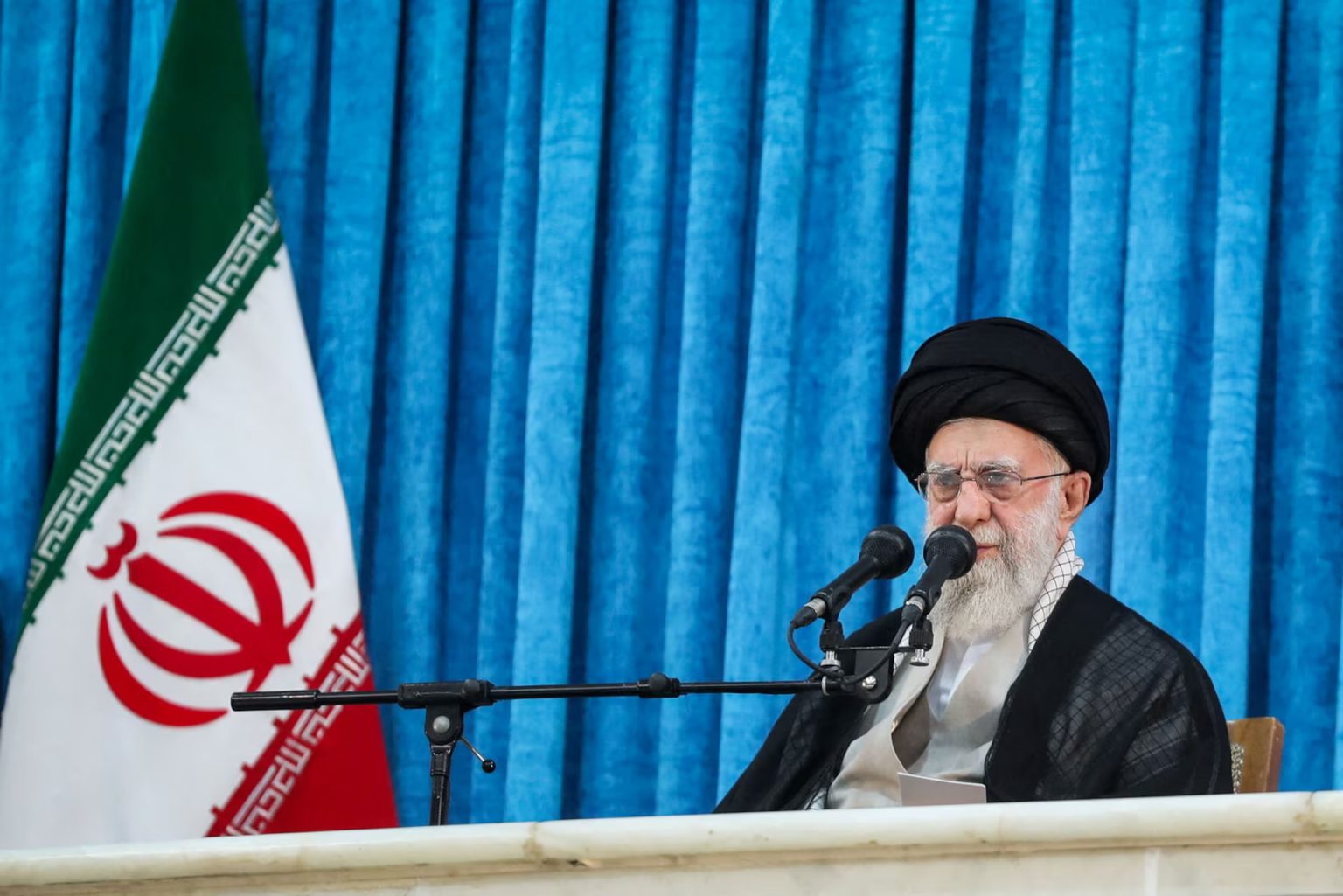Ayatollah Khamenei’s Isolation Amid Israel-Iran Conflict: A Strategic Turning Point**
*By Hotspotorlando News via Political Correspondent*
As the Israel-Iran conflict rages into its fifth day, reports suggest that Iran’s Supreme Leader, Ayatollah Ali Khamenei, is increasingly isolated, both physically and strategically, as Israel’s relentless airstrikes dismantle the Islamic Republic’s military and nuclear infrastructure. Sources indicate Khamenei, now 86, has retreated to an underground bunker with his family, transferring significant authority to the Islamic Revolutionary Guard Corps (IRGC) in a move that signals a regime under existential strain.
Israeli strikes, which began Friday, have decimated Iran’s chain of command, killing key figures like IRGC commander Hossein Salami and other senior military and nuclear scientists. The attacks have crippled Iran’s Natanz nuclear facility, with the International Atomic Energy Agency reporting severe damage to its uranium enrichment centrifuges, setting back Tehran’s nuclear ambitions by years. Social media posts on X claim Khamenei has ceded operational control to the IRGC’s Supreme Council, with one source alleging he told commanders, “I give you all the power. You will determine how to continue this war.” While unverified, these reports paint a picture of a leader bunkered down, grappling with a collapsing inner circle.
President Donald Trump, fresh from cutting short his G7 attendance to address the crisis, has capitalized on Iran’s disarray. His administration’s deployment of the USS Nimitz and dozens of refueling tankers to Europe underscores a readiness to back Israel’s campaign while warning Iran against targeting U.S. assets. Trump’s ominous Truth Social post urging Tehran’s evacuation and his call for Iran’s “unconditional surrender” reflect a hardline stance, though he’s hinted at openness to diplomacy, reportedly directing aides to explore meetings with Iranian officials. “It’s time for a deal, before it’s too late,” Trump said at the G7, balancing threats with a nod to de-escalation.
Iran’s response, led by Foreign Minister Abbas Araghchi, has been defiant yet desperate. Araghchi called Israeli Prime Minister Benjamin Netanyahu a “war criminal” and urged Trump to rein in Israel, claiming one phone call could halt the aggression. Iran’s missile barrages on Tel Aviv and Haifa have killed 24 Israelis, per local reports, but its defenses are buckling under Israel’s claimed “full aerial superiority” over Tehran. The Iranian Ministry of Health reports 224 civilian deaths, fueling domestic unrest as gridlocked roads hamper evacuations and oil prices spike amid fears of a Strait of Hormuz closure.
Conservatives see Khamenei’s isolation as proof of Trump’s “peace through strength” strategy working. Israel’s strikes, coordinated with U.S. intelligence, have exposed the regime’s vulnerabilities, weakening its regional proxies like Hamas and Hezbollah. Netanyahu’s refusal to rule out targeting Khamenei himself—saying it would “end, not escalate, the conflict”—aligns with Trump’s goal of neutralizing Iran’s nuclear threat. Critics, including Democrats pushing war powers resolutions, warn of a broader regional war, but supporters argue that a weakened, isolated Khamenei presents a rare opportunity to topple a regime long hostile to American interests.
As Tehran burns and Khamenei hides, Trump faces a pivotal moment. His dual-carrier presence in the Arabian Sea and bolstered air assets in Europe give him unmatched leverage. Whether he pursues a diplomatic off-ramp or backs Israel’s push to finish the job, one thing is clear: Khamenei’s isolation marks a tectonic shift, and America holds the cards.
*Sources: Reuters, Associated Press, Al Jazeera, The New York Times, Posts on X*web:0,1,5,6,9,23post:0,4,5

